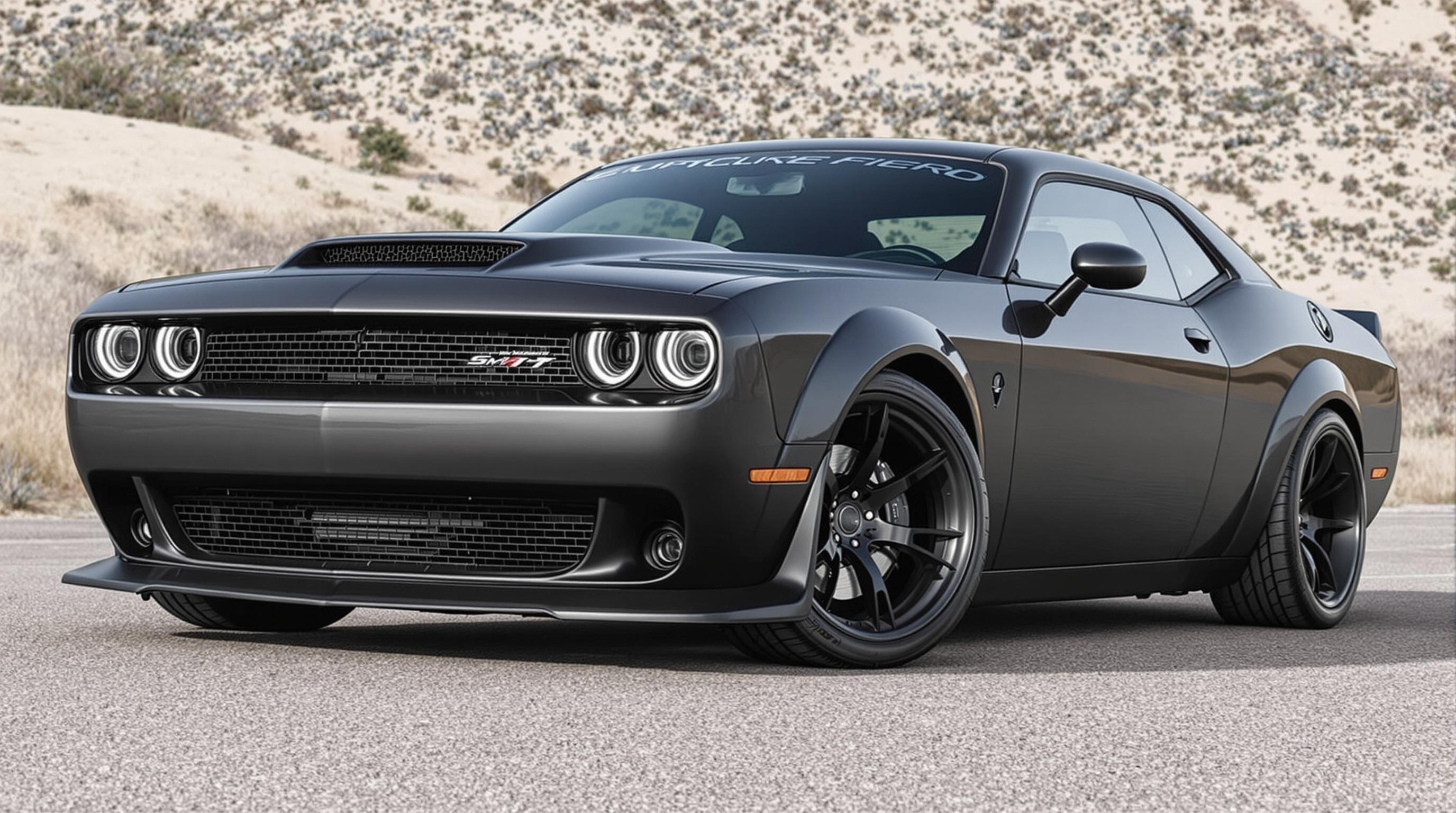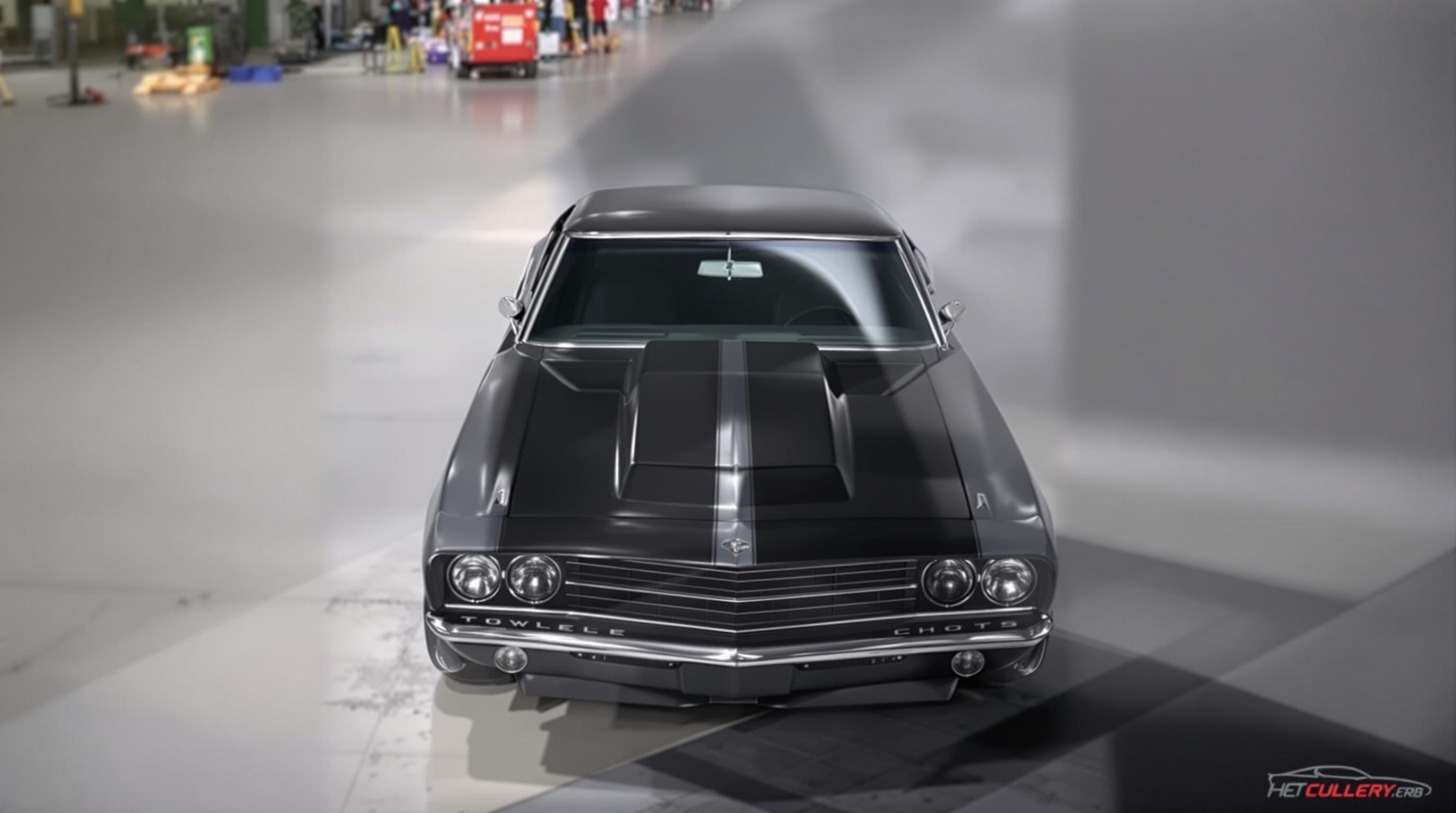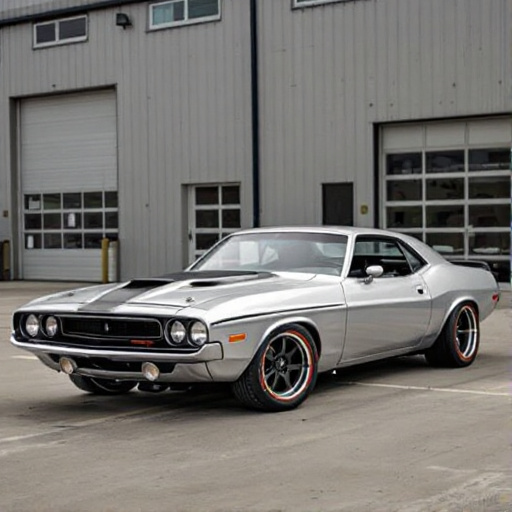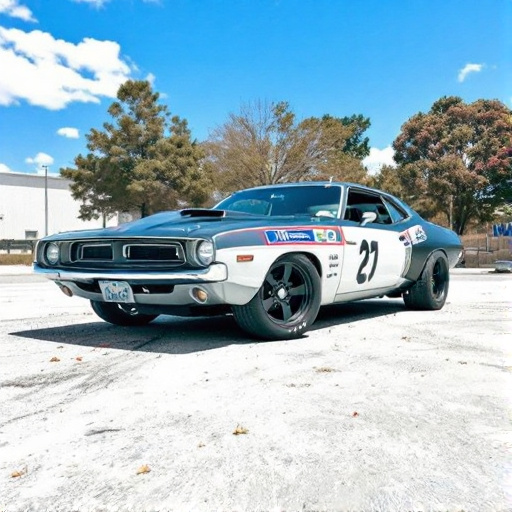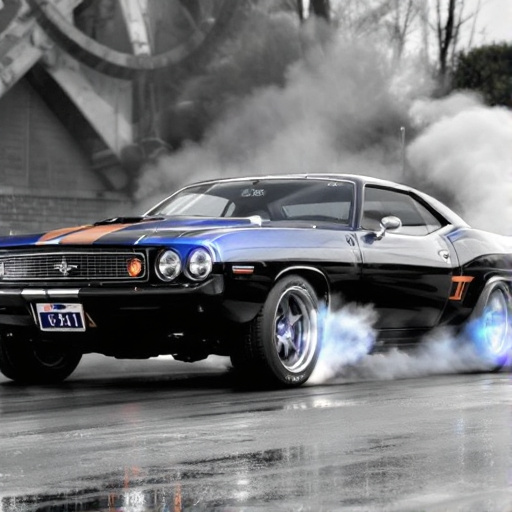Featured Articles
- Reviving the Roar: How Electric Conversions Are Changing the Fate of Classic American Muscle Cars
- Revving Up Nostalgia: How American Muscle Cars Shaped 70s Subculture and Today's Retro Trends
- Revving Up Nostalgia: The Revival of Classic Muscle Car Culture Among Gen Z Enthusiasts
- Revving Up Nostalgia: The Surprising Resurgence of Muscle Cars in Eco-Friendly Customizations
- Revving Up Nostalgia: The Surprising Rise of Vintage Muscle Car Restoration in the Electric Era
The Unexpected Revival of Vintage Muscle Car Racing in the Age of Electric Vehicles: A Cultural Collision
The Unexpected Revival of Vintage Muscle Car Racing in the Age of Electric Vehicles: A Cultural Collision
The unexpected revival of vintage muscle car racing in the era of electric vehicles is not just a nostalgic nod to the past; it's a cultural phenomenon that celebrates power, freedom, and rebellion. This resurgence invites us to explore how these roaring classics coexist with the rising tides of technology and environmental consciousness.
Once Upon a Time… in a Garage Near You
A thirtysomething gearhead, Alex Martinez, flips through a dusty old album of cars. A roaring ’70s Pontiac Firebird grabs his attention—a relic of a bygone era, yet it tugs his heartstrings. After watching countless YouTube videos of vintage muscle cars tearing up the tracks, he decides that nostalgia is worth investing in. For him, muscle cars represent freedom, a spirit of rebellion against today’s clean, quiet electric vehicle (EV) landscape.
The Love Affair with Power
In 2022, about 30% of new car sales in the United States were electric. This clear shift towards EVs might make one think vintage muscle cars are fading into irrelevance. Wrong! It's precisely the rise of EVs that has generated a renewed interest in their gas-guzzling counterparts, creating a cultural collision that may seem incongruous at first. According to the Specialty Equipment Market Association (SEMA), the classic car revival market is now estimated to exceed $1.4 billion, showcasing a community of enthusiasts who are flocking back to those loud, proud machines.
Living In the “Fast Lane” of History
This renaissance hasn’t only manifested as a symbolic brush with history; it's turned into an actual racing spectacle. The Muscle Car Reunion Festival, held annually in various states, has seen record attendances in recent years, with over 10,000 fans participating in its latest edition. Classic cars roar down the tracks, as sections of fans wear T-shirts emblazoned with phrases like “Gasoline and nostalgia.” This sense of community mimics the close-knit culture of motorsports, drawing both old and young enthusiasts alike.
A Battle of Technologies
As much as traditional car lovers enjoy the growl of a V8 engine, the future keeps inching towards battery power. EV companies like Tesla may dominate headlines, but muscle car racing can pull at the heartstrings of human emotions in ways modern technology cannot. The visceral connection between drivers and their roaring machines makes for camaraderie that transcends technology. A friendly rivalry is brewing with events like the “Old School vs. New School Showdown,” where both EVs and muscle cars can be raced together, encouraging innovation in a competitive environment.
The Economics of Gasoline vs. Electricity
Despite the charm of muscle cars, one must admit their economic drawbacks. With skyrocketing gas prices and increasing environmental taxes on fossil fuels, many boat enthusiasts have been forced to re-evaluate their collectives. However, it's not all doom and gloom; vintage car values have been rising steadily, making them an intriguing investment. According to the Hagerty Market Rating, the value of classic cars is expected to rise by an additional 20% in the next five years. So, while gasoline prices climb, so too does the worth of that ‘69 Mustang sitting in your garage.
Bridging Generations
For many young folks, vintage muscle cars are more than just old machines; they're cultural signifiers, connecting them with their parents and grandparents. A high school dropout named Jenna Hughes shares in a YouTube video how her relationship with her dad deepened through their shared love for a ’72 Chevelle. “I grew up listening to stories about how he raced his buddies back in the day, and when we finally restored one together, it felt like reclaiming a piece of my family’s history,” she recalls. This emotional connection anchors a younger generation to the past, despite the more environmentally friendly and technologically-advanced options available today.
Electric Innovation Meets Vintage Charm
On the innovation front, some entrepreneurs are melding old-school style with modern efficiency. Take, for instance, the rise of electric muscle cars—a new breed that combines the visual appeal of vintage styling with cutting-edge EV technology. An electric ’69 Mustang? Some enthusiasts see this as a sacrilege; others proclaim it as a new era of possibility. For those daring enough to retrofit classic muscle cars with electric drivetrains, the appeal lies in remaining true to classic aesthetics while paving the way for a sustainable future.
The Cultural Collision
This amalgamation of a vintage car ethos with cutting-edge technology gives rise to fascinating debates about culture and identity. Intriguingly, car enthusiasts have become advocates for “clean muscle,” promoting hybrid and EV technologies while staying rooted in their love for combustion engines. Many view electric vehicles not as enemies, but rather as potential allies in the broader automotive narrative. Gary Phillips, a mechanic-enthusiast, states, “Why can't we champion both? Imagine driving an EV muscle car, holding onto that roar while contributing to sustainability.”
Environmentalism vs. Nikki: The Personal Touch
A huge part of the muscle car racing movement is personal expression. Take the notorious annual event, “Muscle Car Madness,” where not just speed is celebrated but also the artistry of paint jobs and custom modifications. A group of teenage girls from Tommy’s Garage entered their beloved ’72 Dodge Challenger. With rainbow-colored flames painting its sides, Nikki, the group leader, humorously comments, “It may not be the fastest, but it sure is the prettiest!” This light-hearted competition shows how the movement continues to attract cultural diversity, capturing public interest across age and gender demographics.
Future Considerations
Despite the excitement surrounding this cultural revival, serious considerations loom. Critics argue that nostalgia can obscure pressing issues like climate change. While enthusiasts proclaim, “There’s nothing like the power of a V8!” more environmentally-focused organizations counter with, “There’s nothing worse than global warming!” Less confrontational but equally compelling are grassroots organizations advocating for driving events that raise funds for climate initiatives. Events like the “Green Gasps” fundraiser showcase electric vehicles racing vintage muscle cars in a way that encourages dialogue rather than division.
Conclusion: A Car-Loving Culture
The revival of vintage muscle car racing amid the rise of electric vehicles highlights a fascinating cultural collision that speaks to broader themes of identity, community, and environmental responsibility. While individuals like Alex and Jenna clock in hours of work on their prized classics, they also carve out their identities within a shifting automotive narrative. Whether roaring down a racetrack or contemplating the future of sustainability, this storytelling, camaraderie, and competition are vital components of a car-loving culture that will continue to evolve. The fusion of technology and tradition not only influences how we drive but shapes our understanding of who we are—and who we want to be on the road ahead.
